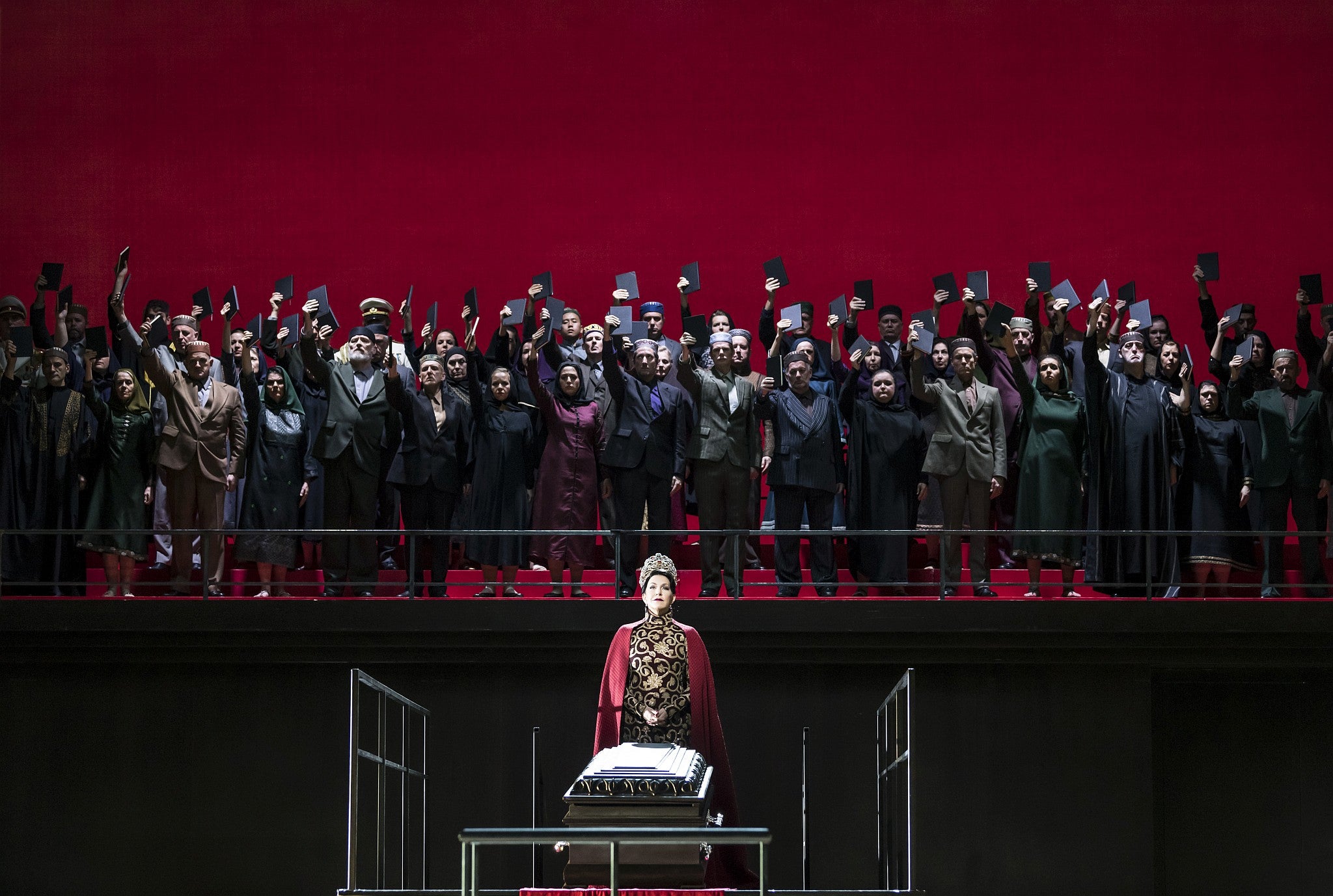Semiramide, Royal Opera House, London, review: stunning music, but a problematic plot
Rossini’s rarely staged opera is both an obvious choice and a risky one for David Alden, but three soloists lift the score to stratospheric heights

Your support helps us to tell the story
From reproductive rights to climate change to Big Tech, The Independent is on the ground when the story is developing. Whether it's investigating the financials of Elon Musk's pro-Trump PAC or producing our latest documentary, 'The A Word', which shines a light on the American women fighting for reproductive rights, we know how important it is to parse out the facts from the messaging.
At such a critical moment in US history, we need reporters on the ground. Your donation allows us to keep sending journalists to speak to both sides of the story.
The Independent is trusted by Americans across the entire political spectrum. And unlike many other quality news outlets, we choose not to lock Americans out of our reporting and analysis with paywalls. We believe quality journalism should be available to everyone, paid for by those who can afford it.
Your support makes all the difference.Rossini’s Semiramide premiered in Venice in 1823, and throughout the 19th century it was a popular vehicle for great voices, but in the 20th it was all but forgotten. David Alden’s new production for the Royal Opera House is its first staging there since Victorian times, and one can easily see why it was both an obvious choice and a risky one.
The vocal writing is glorious throughout, but the plot is deeply problematic: if its original description as a “tragic melodrama” sounds like a contradiction in terms, it is indeed one. It’s a Gothic-Romantic fantasy punctuated by divine interventions, with murder and incest as its guiding threads; there are echoes of Hamlet, Macbeth, and Oedipus Rex.
Alden’s staging suggests a huge wrestle to extract meaning and relevance from it all, and he only partially succeeds. He has placed the plot’s original Babylon in a militarised and Islamised Middle East, and the statue of Baal on which the curtain rises looks like a modern dictator. His female chorus wave little black books as they sing, and his male chorus, togged out like mullahs, enact odd little knee-shuffles with regimented precision; the smoke which periodically envelops the stage increases one’s feeling that it really isn’t worth trying to make sense of it all.
On the other hand, Semiramide’s grossly sexualised costuming, and the presentation of the captive princess Azema – over whom the male characters fight – embody contemporary feminist tropes: the pure-toned Jacquelyn Stucker, who incarnates the strait-jacketed princess, copes heroically with the director’s requirement that she should alternate between convulsive fits and catatonic trances.
That this show should make a stunning evening is thanks entirely to the music. Antonio Pappano and his orchestra bring out all the colour and energy in Rossini’s score, and three soloists lift this score to stratospheric heights. Mezzo Daniela Barcellona invests the Oedipus-like Arsace with fluent expressiveness, while tenor Lawrence Brownlee, as the lustful Indian king Idreno, delivers his high coloratura with ineffable grace.
And in the title role Joyce DiDonato commands our rapt attention at every moment: the beauty, power, and perfection of her singing – the latter most apparent in her exquisite pianissimi – are harnessed in the service of a dramatic intelligence which almost convinces us that this tall tale is worth telling.
‘Semiramide’ is at the Royal Opera House till 16 December
Join our commenting forum
Join thought-provoking conversations, follow other Independent readers and see their replies
Comments